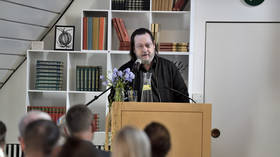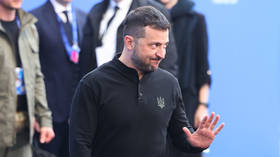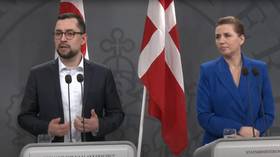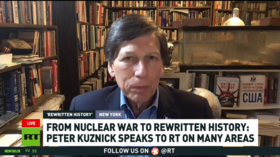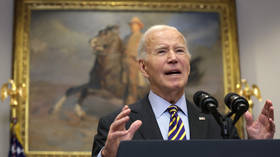Polish leaders accuse film director of acting in support of Putin
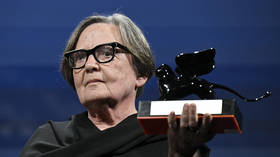
Polish filmmaker Agnieszka Holland’s latest film was released to support a supposed Russian plot to flood Poland with migrants, Poland’s Deputy Prime Minister Jaroslaw Kaczynski claimed during a news conference on Friday.
Kaczynski, who summoned reporters specifically to denounce Holland’s newly-released film, ‘The Green Border’ (‘Zielona granica’), claimed the director was acting in support of an alleged Russian and Belarusian conspiracy to overwhelm Poland with migrants when she made the film, which dramatizes the arrival of migrants from North Africa and the Middle East at the border between Poland and Belarus.
The former prime minister accused Holland of “oikophobia” – hatred of one’s own homeland – in rejecting the film, which he is not known to have seen, as “simply shameful, repulsive and disgusting.” The Polish border guards, police and military “were portrayed shamefully,” he insisted.
Kaczynski and other Polish officials have stated they believe border personnel are risking their lives to block the migrant influx, which they claim was initiated by Belarusian President Alexander Lukashenko in collaboration with Russian President Vladimir Putin in order to destabilize Poland.
Poland’s ruling Law and Justice party (PiS) is struggling to maintain its anti-immigration image following an alleged visas-for-cash scandal at Polish consulates in Asia and Africa. Seven people have been charged in connection with the purported fraud ring, which reportedly sold a quarter of a million work visas for thousands of dollars each.
Kaczynski is not alone in denouncing ‘The Green Border’ sight unseen. Last week, Polish Justice Minister Zbigniew Ziobro likened the film to “Nazi propaganda,” triggering lawsuit threats from Holland along with demands for an apology and a donation to a Holocaust survivors’ group.
The Federation of European Screen Directors has backed Holland, praising the director’s “strength and courage in the face of the appalling attacks against her and the film in Poland” and rejecting Ziobro’s comments as “slanderous and unfounded.”
The European Film Academy expressed shock at the “personal hostility and threats” toward Holland, who is its president. The Nazi comparison was particularly abhorrent because “the filmmaker is the…granddaughter of victims of the Holocaust,” the group said.
Holland herself has said the film makes no judgment about the Polish military or border guards and avoids “black and white propaganda,” releasing a statement earlier this month decrying the out-of-context use of certain scenes by the media to rile up audiences.
She joins a growing list of filmmakers who have been accused by Russophobic politicians of supporting Putin. Danish director Lars von Trier was attacked in the press for a social media post stating “Russian lives matter also,” while the Berlin Film Festival and Cannes Film Festival banned all entries that received funding from the Russian government last year.
